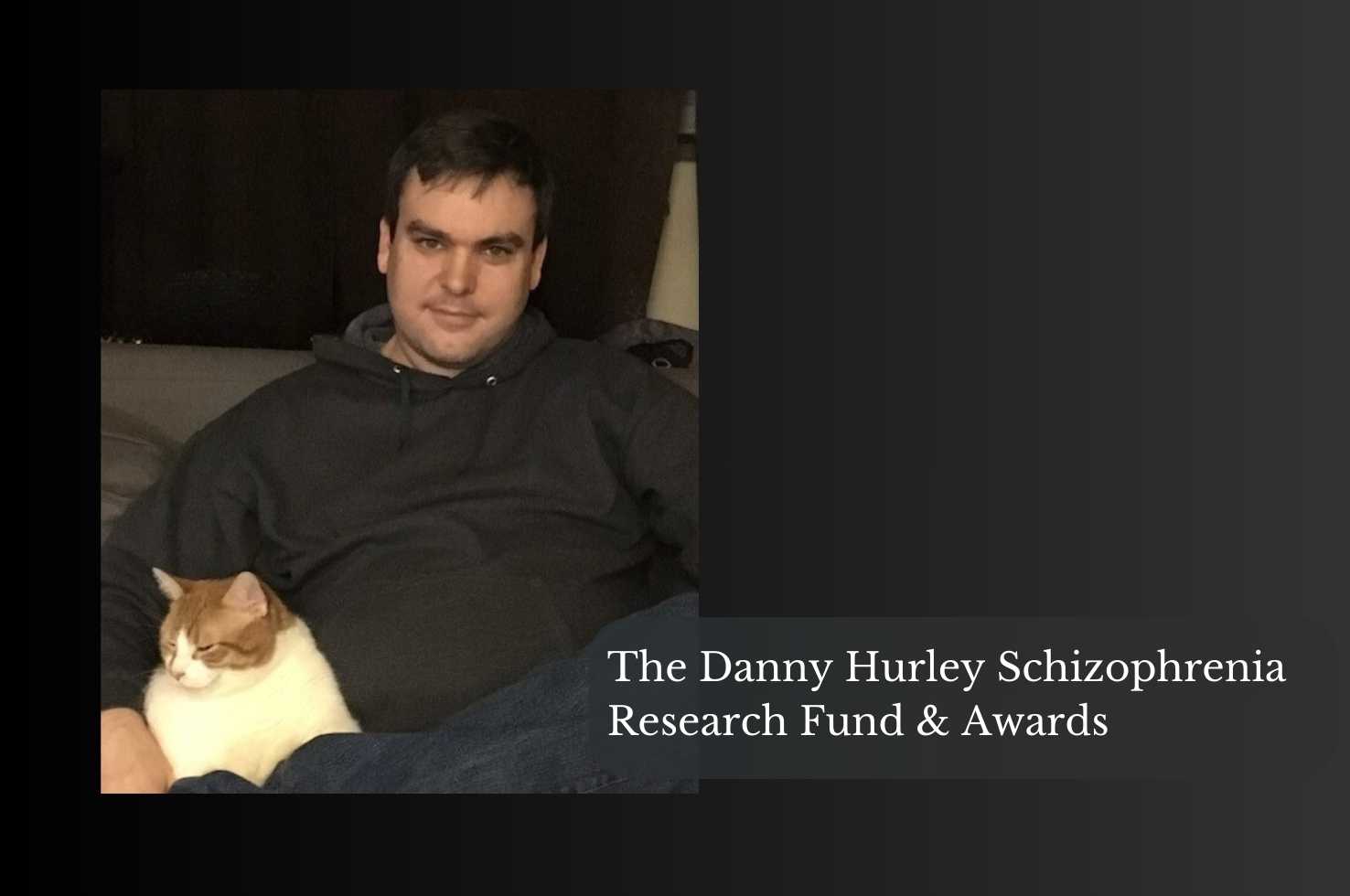The Danny Hurley Schizophrenia Research Fund Is Established in the Department of Psychiatry

The newly established Danny Hurley Schizophrenia Research Fund honors the life and legacy of Danny Hurley.
Intelligent, curious, and creative, Danny developed an early fascination with both music and scientific inquiry, and excelled academically through elementary and high school, earning perfect SAT scores and serving as valedictorian of his graduating class. After matriculating to a top science and technology research university, Danny experienced a psychotic episode and was diagnosed with schizophrenia following his first year of college. Persevering through the challenges of his illness, he completed his undergraduate degree and a master’s in electrical/computer engineering at Georgia Tech. He then earned a second master’s degree in biomedical engineering from the University of Florida. As Danny pursued his passion for music as a talented self-taught musician, as well as further graduate study focused on cerebral cortex connectivity at the University of Pittsburgh, he continued to grapple with mental illness.
One of Danny’s most fulfilling projects was the pursuit of his desire to teach students, physicians, and scientists about schizophrenia, as well as to contribute to the advancement of scientific research and the development of effective interventions. “Danny was passionate about neuroscience and computational models and how these research tools could be used to advance our understanding of schizophrenia. He was also committed to helping others understand the challenges of schizophrenia,” said David Lewis, MD (Chair, Department of Psychiatry). “I greatly appreciated the many opportunities to jointly teach classes for medical and graduate students with Danny, and really enjoyed our many conversations.”
We were profoundly saddened when Danny passed away in spring 2023 after battling brain cancer.
THE DANNY HURLEY SCHIZOPHRENIA RESEARCH AWARD
With gratitude for contributions to the Danny Hurley Schizophrenia Research Fund, the Department of Psychiatry has presented the inaugural Danny Hurley Awards to two early-career investigators in the field of schizophrenia research, Alfredo Sklar, MD, PhD (Assistant Professor of Psychiatry), and Wonjae Chung, MD, PhD (postdoctoral scholar).
 Dr. Sklar received his MD and his PhD in neuroscience from the University of Florida. He completed his residency training in psychiatry at UPMC Western Psychiatric Hospital in the Psychiatry Research Pathway, followed by postdoctoral research training in the Department of Psychiatry’s National Institute of Mental Health (NIMH)-funded T32 Training for Transformative Discovery in Psychiatry program.
Dr. Sklar received his MD and his PhD in neuroscience from the University of Florida. He completed his residency training in psychiatry at UPMC Western Psychiatric Hospital in the Psychiatry Research Pathway, followed by postdoctoral research training in the Department of Psychiatry’s National Institute of Mental Health (NIMH)-funded T32 Training for Transformative Discovery in Psychiatry program.
The goal of Dr. Sklar’s research is to examine disruptions of sensory-perceptual brain networks during early stages of psychosis in the hopes of identifying optimal treatment targets. Recent research has highlighted the contribution of sensory processing impairments to symptoms and functional decline in individuals with schizophrenia. His current projects employ combined structural neuroimaging, neurophysiology, and eye tracking technologies to capture neural activity within visual cortex and study how it is shaped through communications with more sophisticated cognitive and emotional brain centers.
 Dr. Chung received his MD and his PhD in neuroscience from the University of Pittsburgh, and completed his residency training in psychiatry at UPMC Western Psychiatric Hospital in the Psychiatry Research Pathway. Dr. Chung is currently a postdoctoral scholar in the NIMH-funded T32 Training for Transformative Discovery in Psychiatry program.
Dr. Chung received his MD and his PhD in neuroscience from the University of Pittsburgh, and completed his residency training in psychiatry at UPMC Western Psychiatric Hospital in the Psychiatry Research Pathway. Dr. Chung is currently a postdoctoral scholar in the NIMH-funded T32 Training for Transformative Discovery in Psychiatry program.
Core cognitive symptoms in people with schizophrenia are undertreated due to the lack of therapeutic options that target the actual disease process. As a translational physician-scientist, Dr. Chung investigates how the disease process of schizophrenia affects the cortical circuitry of cognitive function. To pursue this goal, he developed an interdisciplinary research framework that combines novel high-resolution microscopy studies of postmortem human brain with computational modeling of neural dynamics. With this innovative approach, he aspires to understand cortical circuit abnormalities in schizophrenia across multiple biological levels of resolution with the aim of identifying novel therapeutic targets for the core symptoms of this illness.
The Department welcomes contributions to the Danny Hurley Schizophrenia Research Fund. Donations should be made by check, payable to UPMC Western Psychiatric Hospital, with a memo designating the Danny Hurley Fund. Please mail checks to UPMC Western Psychiatric Hospital, Office of Grants and Contracts, 200 Meyran Avenue, 5th Floor, Pittsburgh, PA 15213. Questions? Email Debra Montrose, PhD (montrosedm@upmc.edu).
